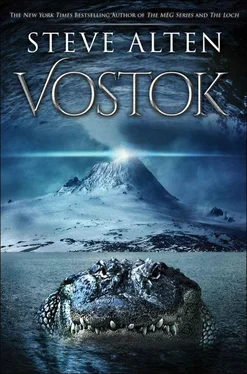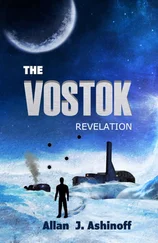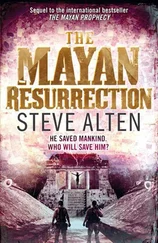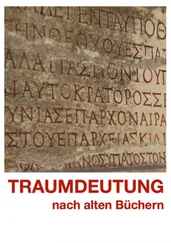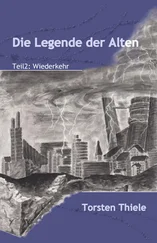“I am the captain of my soul.”
— William Ernest Henley
Jonas read the incoming data as it crawled across his sonar screen. “Range: twelve kilometers and closing. Still too far out to gauge its size, but it’s way too quiet to be that other sub. Maybe it’s an alien vessel, come to collect you and save me the trip.”
“Jonas, I think it might be a life-form.”
“A life-form? Come on. What kind of life-form could survive down here?”
“Vostok’s rich in geothermal vents. There’s a thriving food chain that dates back to the Miocene. How close do we need to be to get a size reading?”
“On a biologic? Less than six kilometers. What are you afraid of, Zachary? Don’t tell me a Meg—”
“It’s not a megalodon.” I tapped my index finger repeatedly on the sonar REFRESH button until new data scrolled across the monitor.
RANGE TO TARGET: 5.78 KILOMETERS.
TARGET SPEED: 8.3 KNOTS.
TARGET SIZE: 18.89 METERS
TARGET COURSE: INTERCEPT!
Jonas swore. “The damn thing’s over sixty feet long, and it’s headed straight for us. Speak to me, Wallace. What’s out there?”
“There’s a species of Miocene sperm whale inhabiting Vostok. Ever hear of Livyatan melvillei ?”
“That whale with the big teeth and the lower jaw of an orca? Damn it, Zachary. Why didn’t you mention this to me before?”
“I didn’t think they could follow the river this far from Vostok. Once we were in the lake, I figured you’d be able to outmaneuver them in the Manta.”
“Not with these lasers strapped to our wings — Geez! There it is.”
A dark mass appeared in our starboard headlight’s periphery some two hundred yards ahead. Jonas was about to make an evasive maneuver when we both realized something was wrong. The whale’s movements seemed erratic, the tip of the creature’s box-shaped head scraping the bottom of the ice sheet. As we halved the distance, we could see the fluke hanging motionless below the leviathan’s body.
It wasn’t swimming; it was dead. The current was propelling its carcass along.
Jonas banked into a tight turn and brought us up beside the whale. Along its right flank was a fresh wound scorched ashen-gray, a twelve-foot-wide crater of blubber corresponding to the approximate dimensions of the bow of Colonel Vacendak’s submarine.
* * *
The next twenty-seven hours were maddening — the equivalent of flying from Los Angeles to Sydney, Australia, and back again, in heavy turbulence, while being forced to remain seated. Under its best behavior, the subglacial river ran deep over stretches of flat bottom. Under the worst conditions, it was a twisting vortex with rapids that caught the Manta’s wings and threatened to flip us head-over-tail — which happened twice, the last time sending us tumbling like a pinwheel a half-mile back from whence we’d come.
Then there were gaps where the river simply stopped flowing, walled off by a dam of ice. The first time this happened left us both disoriented and unnerved, and too mentally exhausted to reason. A twenty-minute yelling match ensued, after which we decided to shut down the engines and get some much-needed sleep.
The thought of having another out-of-body experience didn’t bother me as much as it did Jonas. The last thing he wanted was to awaken beneath the Antarctic ice sheet next to my cold, lifeless corpse. Not that a part of him didn’t want to strangle me, but I was no good to him dead. And so he kept vigil until he was convinced I had entered R.E.M. sleep.
Now I lay me down to sleep; I pray the Lord my soul to keep. If I should die before I wake, I pray the Lord my soul to take .
* * *
Brandy woke me .
I was sneaking in a nap, sequestered in my study in our home in Solihull, a quaint town in England’s West Midlands. The window was partially frosted, our garden blanketed by last night’s snow. The air inside my office was tinged with the scent of a basting turkey and the dying embers from my fireplace .
Life was good. I had retired seven months earlier, having served the last nine years as the Dean of Solihull College. With pensions coming from Cambridge and S.C., along with royalties generated from three patents, we were well-off financially and able to assist our three children and their families .
The boys had arrived last night: William, his wife, Jackie, and their two girls from London, and Andrew, his wife, Rachel, and the baby from Drumnadrochit. Claire and her fiancé were due in, their plane arriving from Boston later this evening. I heard the boys playing ping-pong in the basement and the grandkids playing with their Christmas presents in the den .
Brandy’s dark hair was pulled back in a tight bun, revealing a few gray roots, her apron tied around her torso. Feeling slightly guilty over having fallen asleep while she cooked, I feigned innocence. That’s when I noticed that my wife’s blue eyes were red-rimmed and frightened .
“Zach, something terrible has happened.”
My chest tightened. “What’s wrong? Is Claire all right?”
“It’s not the kids.” She searched my desk for the remote and turned on the television .
The news was on every station, the story coming from the States. Reporters talked over fluctuating images: lava as wide as a river, swallowing a neighborhood; collapsing bridges and billowing chocolate-brown smoke; highways backed up in traffic as far as the eye could see .
While I slept, hell had opened its gates beneath Midwestern America .
Brandy paused from channel-surfing at a newscast featuring an animated aerial view over a national park .
“ …to recap if you’re just joining us, at approximately 4:47 a.m. Wyoming time, the Yellowstone Caldera, an underground magma chamber fifty-five miles long, erupted beneath Yellowstone National Park. Categorized as a supervolcano, the Yellowstone Caldera has erupted three times in the past 2.1 million years, the last major eruption occurring 640,000 years ago to form the crater beneath the park. Experts say this morning’s blast was two thousand times more powerful than the 1980 Mount St. Helens eruption .
“Dawn Marie Hurtienne is a volcano expert working with the U.S. Geological Survey. She joins us now from Wyoming. Dr. Hurtienne, this is Melody Matney. Thank you for taking time to speak with us. We understand you are in the process of evacuating your family. Was there any warning this eruption might occur?”
“Scientists began warning Washington about this event as far back as 2004, when the ground above the caldera began rising at a rate of 2.8 inches a year. Yellowstone trails had to be shut down when ground temperatures exceeded 240 degrees Fahrenheit. Yet they never took our warnings seriously.”
“Was there anything that could have been done to prevent it?”
“We proposed several potential solutions to deal with the caldera threat, including the construction of a deep-well venting system. Congress vetoed the deal three years ago, claiming the $23 billion price tag was far too excessive for a tourist attraction. When we protested, news pundits on one politically slanted network accused members of the U.S. Geological Survey of using scare tactics to fund our department.”
“Obviously, a blast of this magnitude striking so early in the morning represents a worst-case scenario. We’re getting death estimates ranging from eight to ten thousand—”
“Ms. Matney, I don’t think you comprehend the magnitude of this event. It’s not the initial blast or the lava flow we have to fear; it’s the ash cloud. As it rises into the stratosphere it will span the entire globe, blanketing the atmosphere and blotting out the sun’s rays. Photosynthesis will cease, which means crops will fail, leading to mass starvation. The Earth’s temperatures will plummet, initiating another ice age. What we’re looking at is the opening act of a planet-wide cataclysm — an extinction event.”
Читать дальше
